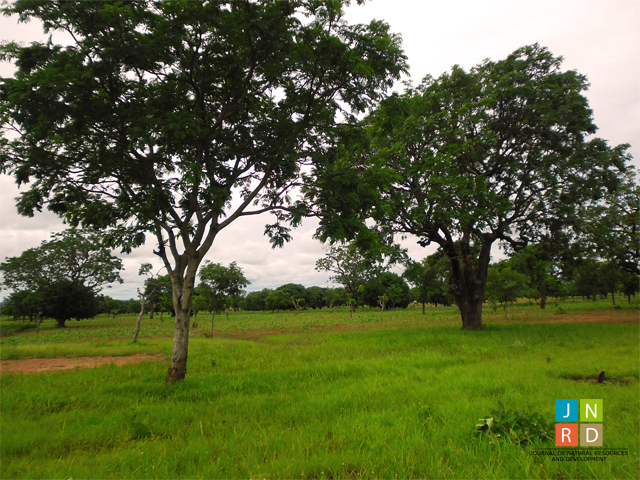Tree tenure and its implications for sustainable land management: The case of Parkia biglobosa in the Northern Region of Ghana
Main Article Content
Abstract
Parkia biglobosa is a multipurpose species found in Savannah agroforestry parklands of West Africa. The species is important as it prevents against land degradation while providing food and other products. This study focuses on how land and tree tenure arrangements affect tree populations in three traditional areas in the Northern Region of Ghana (Dagomba, Gonja and Mamprusi) and the implications that these arrangements have for sustainable land management. Focus group discussions and key informant interviews were held in the three communities to provide information on the tenural arrangements of Parkia biglobosa. A tree census was conducted to estimate the densities of Parkia biglobosa in crop and fallow fields. The study shows that differences in tenure systems in the three traditional areas have implications for Parkia biglobosa populations and also for sustainable land management. It is concluded that traditional tenure systems along with regulation protect the trees from destruction as observed in the Dagomba and Gonja areas compared to the open access system identified in Kperiga in the Mamprusi area.
Article Details
Issue
Section

This work is licensed under a Creative Commons Attribution-NonCommercial-NoDerivatives 4.0 International License.

